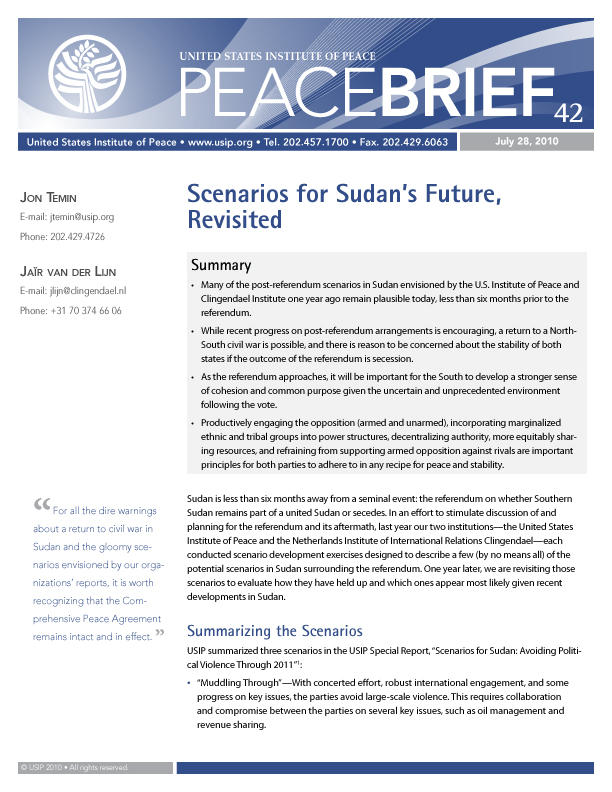Scenarios for Sudan's Future, Revisited
Many of the post-referendum scenarios in Sudan envisioned by the U.S. Institute of Peace and Clingendael Institute one year ago remain plausible today, less than six months prior to the referendum.

Summary
- Many of the post-referendum scenarios in Sudan envisioned by the U.S. Institute of Peace and Clingendael Institute one year ago remain plausible today, less than six months prior to the referendum.
- While recent progress on post-referendum arrangements is encouraging, a return to a North-South civil war is possible, and there is reason to be concerned about the stability of both states if the outcome of the referendum is secession.
- As the referendum approaches, it will be important for the South to develop a stronger sense of cohesion and common purpose given the uncertain and unprecedented environment following the vote.
- Productively engaging the opposition (armed and unarmed), incorporating marginalized ethnic and tribal groups into power structures, decentralizing authority, more equitably sharing resources, and refraining from supporting armed opposition against rivals are important principles for both parties to adhere to in any recipe for peace and stability.
About This Brief
This Peace Brief was written by Jon Temin, a senior program officer at USIP, and Jaïr van der Lijn, a senior research fellow at the Clingendael Institute, both of whom focus much of their work on Sudan. The Netherlands Institute of International Relations Clingendael works to identify and analyze emerging political and social developments for the benefit of government and the general public.



